10 Questions for Atom Egoyan | reviews, news & interviews
10 Questions for Atom Egoyan
10 Questions for Atom Egoyan
The Armenian-Canadian director of 'The Sweet Hereafter' discusses his films' deeply personal roots
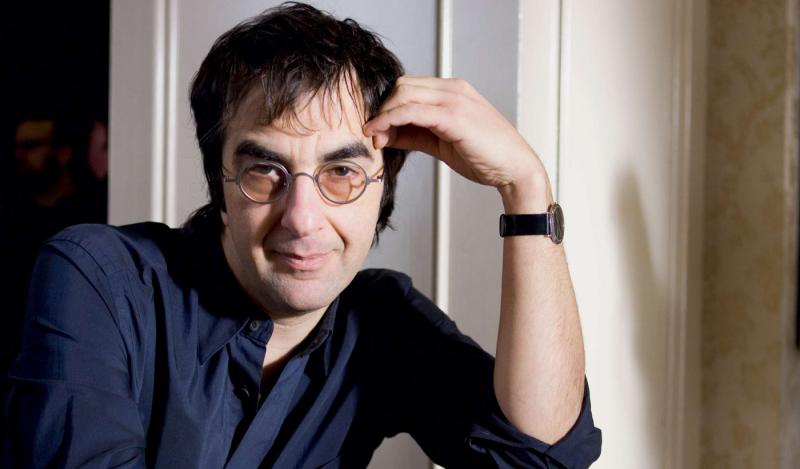
Schoolchildren drowning under a frozen lake in their crashed bus is the image most people still associate with Atom Egoyan.
Egoyan’s most financially successful and worst-reviewed film was Chloe (2007), in which Julianne Moore, Liam Neeson and Amanda Seyfried play erotic and narrative games, but by the end find themselves in a bog-standard erotic thriller; his most nakedly heartfelt was Ararat (2002), in which Charles Aznavour’s director tries to shoot a film about the Turks’ 1915 genocide of the Armenians. The ethnic identity of Egoyan, born in Egypt in 1960 to Armenian parents who moved to Canada when he was 2, was an early, eventually productive source of angst. “My parents were unable to keep me speaking their language,” he told me in a previous interview. “What I went through is in some ways the Canadian dream, the assimilationist dream...I’m a model example. The idea of someone who pretends to be someone they’re not, and being rewarded for that, has always fascinated me. As long as you’re not harming others, what is the advantage of living in the truth?”
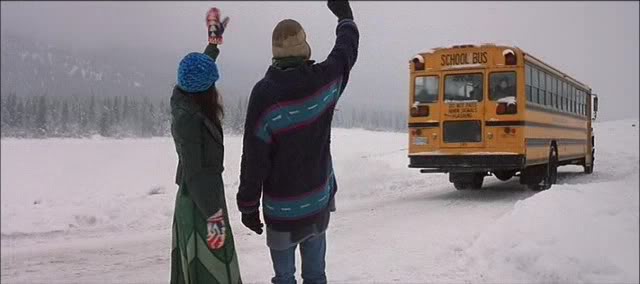 The release of remastered DVDs and Blu-rays of Egoyan’s first seven films makes it clear that the bodies struggling to surface in the seventh, The Sweet Hereafter, are an apt metaphor for his early work. In Next of Kin (1984), a teenager abandons his parents to pose as the long-lost son an Armenian couple gave up for adoption, a deception which makes everyone happier. Family Viewing (1987) finds an equally alienated boy swapping his Armenian grandmother with the corpse of another, in order to smuggle her from an old people’s home into his care. In The Adjuster (1991), Elias Koteas (pictured below) and his family live in a model home for an unbuilt estate, while another couple role-play, erotically and desperately. Videotape snakes through these films, technology’s effect on communication and character and potential for surveillance and subterfuge a prescient theme.
The release of remastered DVDs and Blu-rays of Egoyan’s first seven films makes it clear that the bodies struggling to surface in the seventh, The Sweet Hereafter, are an apt metaphor for his early work. In Next of Kin (1984), a teenager abandons his parents to pose as the long-lost son an Armenian couple gave up for adoption, a deception which makes everyone happier. Family Viewing (1987) finds an equally alienated boy swapping his Armenian grandmother with the corpse of another, in order to smuggle her from an old people’s home into his care. In The Adjuster (1991), Elias Koteas (pictured below) and his family live in a model home for an unbuilt estate, while another couple role-play, erotically and desperately. Videotape snakes through these films, technology’s effect on communication and character and potential for surveillance and subterfuge a prescient theme.
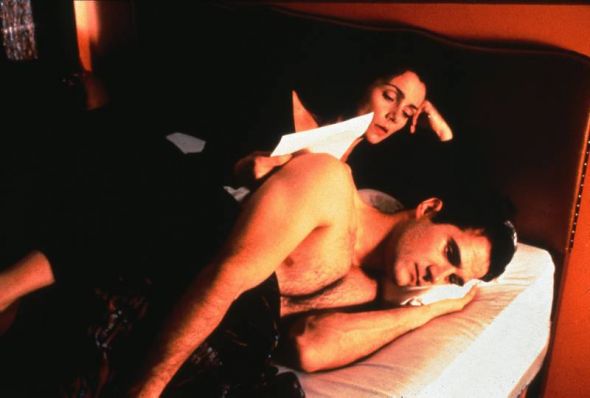 But amidst the distancing formal devices, there are isolated moments where deep emotion nearly rises to be felt: the confused, grown boy sinking gratefully into his ailing grandmother’s arms for a cuddle in Family Viewing; Elias Koteas’s increasingly mechanical, strained words of comfort for others in The Adjuster as his own life suffocates; and the long take of Maury Chaykin’s Bubba in the same film, talking about a character that’s really himself, more moving the more painfully his monologue is extended, as we watch him start to crack apart, like the fatal fault-lines in an iceberg. As with the early films of his compatriot David Cronenberg, this is Egoyan’s low-budget, wholly self-generated, fundamental work. The Sweet Hereafter, adapted from Russell Banks’s novel, began a wider, more diffuse, ongoing career. He takes a break from editing Queen of the Night, a thriller with Ryan Reynolds, to talk with me, and has also started work with star Reece Witherspoon on Devil’s Knot, about the awful legal injustice perpetrated on the West Memphis Three. But these first films are dug from Atom’s heart.
But amidst the distancing formal devices, there are isolated moments where deep emotion nearly rises to be felt: the confused, grown boy sinking gratefully into his ailing grandmother’s arms for a cuddle in Family Viewing; Elias Koteas’s increasingly mechanical, strained words of comfort for others in The Adjuster as his own life suffocates; and the long take of Maury Chaykin’s Bubba in the same film, talking about a character that’s really himself, more moving the more painfully his monologue is extended, as we watch him start to crack apart, like the fatal fault-lines in an iceberg. As with the early films of his compatriot David Cronenberg, this is Egoyan’s low-budget, wholly self-generated, fundamental work. The Sweet Hereafter, adapted from Russell Banks’s novel, began a wider, more diffuse, ongoing career. He takes a break from editing Queen of the Night, a thriller with Ryan Reynolds, to talk with me, and has also started work with star Reece Witherspoon on Devil’s Knot, about the awful legal injustice perpetrated on the West Memphis Three. But these first films are dug from Atom’s heart.
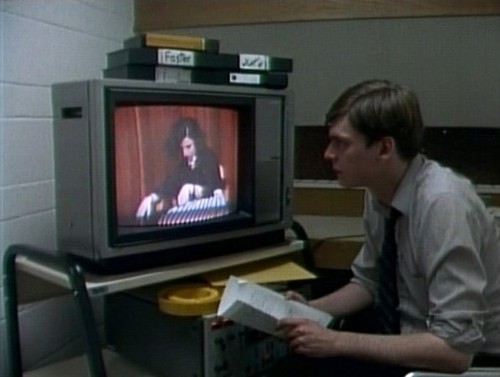 NICK HASTED: Have you had a chance to look back at these early films of yours?
NICK HASTED: Have you had a chance to look back at these early films of yours?
ATOM EGOYAN: I did have a chance to go back when we remastered them, and I just, curiously, showed Family Viewing to our son, and he actually thought it was one of the best films I’ve made. So it was a wonderful experience to show it to him at this age - he’s 19 now, the same age as the boy in the film. I’m very struck by how personal these first few films are - especially Next of Kin and Family Viewing, they really attempt to investigate things that I was feeling very specifically at that time. They feel very direct. And it’s also interesting to me, because Next of Kin (with Patrick Tierney, pictured above) was a film that I was very frustrated by. I was trying to express something through a plan that didn’t quite work. There was a very specific idea I had of the first part of the film being very static, with very fixed tripods and being very mediated, and then there would be this moment in the family therapy session where the therapist tries to incarnate the spirit of this missing person, and suddenly the camera would lift off the tripod and become hand-held and impart this very eerie and haunting presence, and you felt that suddenly the camera was alive. It never quite worked that way. It became like a documentary. It didn’t have the feeling I wanted. So when I made Family Viewing, I was very rigid, and very clear about what the texture should be, and everything had to be very planned. It’s interesting to see me in these first two features trying to find the language to convey the emotional trajectory of these characters. And at the time there was a very strong split between video and film, and very different textures. In video, you had this idea of generational loss - if you duplicated material, it would deteriorate, and I was trying to use that [degraded video] texture in Family Viewing. And it was interesting when I was remastering it that we don’t have that separation between video and film any more. This texture becomes almost obsolete. And all you’re left with of course is just a story! [laughs] Which is what most people respond to anyhow, right?
Overleaf: "I am consumed by the idea of not quite fitting in, of having to become an imposter"
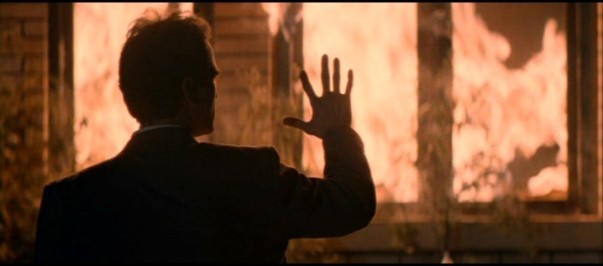 Do you feel there’s some loss in that lack of loss, and lack of texture? Has anything been lost in this remastering?
Do you feel there’s some loss in that lack of loss, and lack of texture? Has anything been lost in this remastering?
It’s a really good question, because these films were born out of the time when I was so accustomed to watching the projected image, and very aware of texture and choices, and unfortunately we’ve slipped into a time where we don’t know how people are going to end up watching our films, they’re going to be watching them in ripped formats, which are heavily compressed. I’m really shocked at how little quality matters to people who are watching things on a computer. It’s funny, now I’m just going to a session this afternoon doing the correcting of the latest film, and you have to believe, and maintain the highest possible standards, that things are being read carefully. In reality, they’re not. Not only are images being compressed and distorted, but of course they’re also being manipulated by people who are sharing images now, and reconstructing films with deleted scenes. I look on the internet and find fans creating these interpretative trailers and short films based on my own work. That’s just part of their journey with that material. So it’s a very different world than when these films were made. I think it would be very difficult to have the same trajectory if I was starting to make films now. You know, when you look at films like The Adjuster, especially (pictured above) - the idea of a master-shot, this idea of very long takes, was something that people knew how to read at that time, they knew what that meant, and they knew what that commitment meant. But it doesn’t really have the same resonance any more. That doesn’t pain me - it’s just an evolution.
Do you worry that the cinematic language that you were learning so carefully over the course of these early films has almost become obsolete?
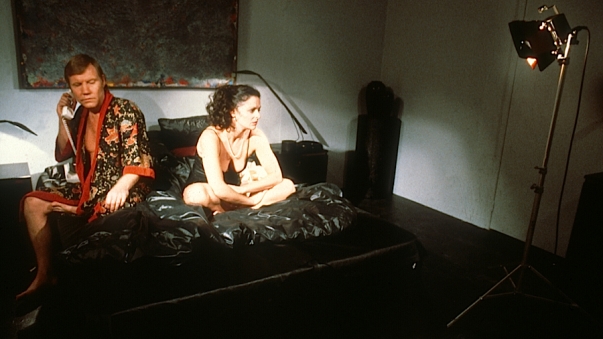 I don’t worry about it. I just hope that those who are serious understand what that language was. Much the same way that anyone who is interested in examining an ancient culture has to learn that language. So it becomes perhaps academic. It was the current language that produced that work, and it was made with an expectation that my viewer would be able to read. But what remains steady are these unusual narratives that these films explore, which can be read by anyone. I’ll never forget, actually, that when Family Viewing (with David Hemblen and Gabrielle Rose, pictured above) won the prize at the Toronto Film Festival, the critic from Le Monde was asked if he awarded it because of the video language and the new texture that the film was exploring, and he said, “No, I just thought it was an interesting approach to a thriller.” And I thought, that’s valid as well. What persists is narrative and characters.
I don’t worry about it. I just hope that those who are serious understand what that language was. Much the same way that anyone who is interested in examining an ancient culture has to learn that language. So it becomes perhaps academic. It was the current language that produced that work, and it was made with an expectation that my viewer would be able to read. But what remains steady are these unusual narratives that these films explore, which can be read by anyone. I’ll never forget, actually, that when Family Viewing (with David Hemblen and Gabrielle Rose, pictured above) won the prize at the Toronto Film Festival, the critic from Le Monde was asked if he awarded it because of the video language and the new texture that the film was exploring, and he said, “No, I just thought it was an interesting approach to a thriller.” And I thought, that’s valid as well. What persists is narrative and characters.
You were talking about the very personal concerns that you can see looking back at these early films, which you’ve said are about “emotions so strong that they had to be contained”. Could you characterise those emotions, and the personal concerns that run through these films?
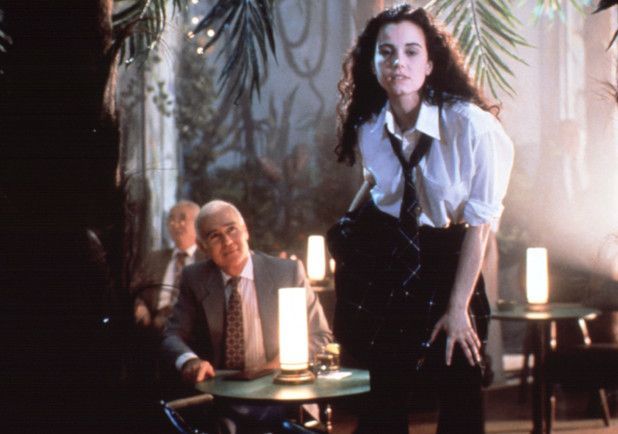 I am consumed by this idea of not quite fitting in, and having to become something of an imposter, and of being very consciously aware of reconstructing yourself, in order to inhabit a place where you don’t feel that you’re entirely welcome. The performative aspect of personality is something I’m really sensitive to, because of coming to a country at a time when you’re aware that you can completely reconstruct yourself if you have the will. I was really desperate as a young child to find a way of integrating and assimilating into the fabric of Canadian culture, and I think there were a lot of things that I very easily surrendered. You’re aware of what it is you’ve left behind. The figure of the grandmother in Family Viewing, and the boy’s relationship to the grandmother, was very personal for me, and there were characters in my life that I knew would be implicated in some of the stories that I was telling, and I just made the decision early on that that was part of what I needed to do. I felt that this idea of a well of emotions that was being contained and buried by all sorts of other agendas to finally well up and manifest itself was a very strong way of constructing these films. And I had this incredible and fortunate relationship with the brilliant composer Mychael Danna from Family Viewing on. I was so thankful for this early collaborator, because we felt that there was a way of using music so that emotions could be presented so that they were in opposition to what you were seeing. The music was telling you that there was an emotional suppression, and the movement of the film was to reconcile what you were seeing and how the characters were behaving with what you had already heard, with what the music had told you was lurking there, and was waiting to be released. I think that was a really important way of dealing with this idea of repression of emotional history, through the score. I was so gratified that he just won an Academy Award this year, because he’s done brilliant work for a long time.
I am consumed by this idea of not quite fitting in, and having to become something of an imposter, and of being very consciously aware of reconstructing yourself, in order to inhabit a place where you don’t feel that you’re entirely welcome. The performative aspect of personality is something I’m really sensitive to, because of coming to a country at a time when you’re aware that you can completely reconstruct yourself if you have the will. I was really desperate as a young child to find a way of integrating and assimilating into the fabric of Canadian culture, and I think there were a lot of things that I very easily surrendered. You’re aware of what it is you’ve left behind. The figure of the grandmother in Family Viewing, and the boy’s relationship to the grandmother, was very personal for me, and there were characters in my life that I knew would be implicated in some of the stories that I was telling, and I just made the decision early on that that was part of what I needed to do. I felt that this idea of a well of emotions that was being contained and buried by all sorts of other agendas to finally well up and manifest itself was a very strong way of constructing these films. And I had this incredible and fortunate relationship with the brilliant composer Mychael Danna from Family Viewing on. I was so thankful for this early collaborator, because we felt that there was a way of using music so that emotions could be presented so that they were in opposition to what you were seeing. The music was telling you that there was an emotional suppression, and the movement of the film was to reconcile what you were seeing and how the characters were behaving with what you had already heard, with what the music had told you was lurking there, and was waiting to be released. I think that was a really important way of dealing with this idea of repression of emotional history, through the score. I was so gratified that he just won an Academy Award this year, because he’s done brilliant work for a long time.
Exotica (pictured above with Mia Kirshner) was a breakthrough to a bigger audience. Do you think there’s anything in that film that led that to happen? There’s a sexual heat in it, and perhaps there’s a greater warmth, a thawing, as well.
Yeah - I think the fact that it is a puzzle film, and that it was much easier to market than the other films. And it was graced with a title that I was shocked that no one had used before - it was a word that everyone knew internationally, and it did really describe the life of the film, that ultimately what was most exotic to the characters was their relationship to their own experience. So it had a very strong concept which could be marketed, but which was also true to the film itself. I do think of course there was the sexual element. I’ll never forget seeing the trailer that Miramax had at the time, and they marketed it as being the first in a whole series of striptease movies - there was Demi Moore’s Striptease, there was Showgirls I suppose, and this was really ahead of the curve. But I don’t think that’s why the film broke through. It had this structure, and it did create this very lush, intoxicating world in that space [of the strip club]. There is that very clear way in which the story was centred in this location, and then there was this very interesting panopticon effect in the club of everyone being surveilled and watched, as Leonard Cohen sings “Everybody Knows”. But I think that, for all that, it just had a really good ending. It was an ending that I came to very late, and that when you finish the film makes you refract back on everything else you’ve seen through this other perspective. I was very proud of that, and I had the opportunity of not having to explain it to many people. The film was so low-budget, I didn’t have to go through the endless note-sessions and justifications. It felt that I was able to create this ending, and as a viewer I think you’re aware of the freshness of it, when you understand the way that the people are connected.
Overleaf: "That film was betrayed by its ending. Genre reared its head in a very bold and ugly way."
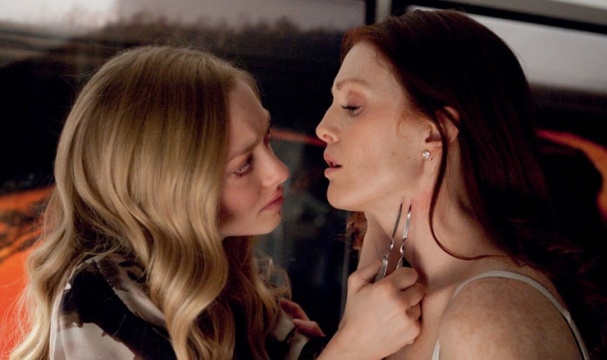
To leap ahead for a moment, did you find the reception for Chloe [Amanda Seyfried in the title role, pictured above left with Julianne Moore] rather like viewing that trailer for Exotica? Because it strikes me with Chloe that you unknowingly made an erotic thriller - that the script, by someone else, falls into that genre at times, but you were unaware of it.
I’m really interested in the drama, right, I’m interested in the characters. I felt that that film was betrayed by its ending, which I fought, and I got it to be better than what the ending in the script was, which was the Fatal Attraction ending, that he [Liam Neeson’s husband character] comes in the house and kills her [Chloe] himself. I just thought, “I can’t shoot that,” and so we ended up staging it as an accident, where she kills herself, or whatever it was - but that was the moment where I thought that genre unfortunately reared its head in a very bold and quite ugly way. I felt that up until that point, I’m so with the characters, and we had really good actors who were able to elevate it all, and there was this feeling of Toronto, and visually creating a world for it. But there are these contingencies! [laughs] The sad thing was that we tested this other ending, where they find Chloe in bed with the son, and Chloe just puts on her clothes and leaves, and I loved that ending. But the audience they were testing it for wanted something else, and so it became this compromise. That’s why I really prefer producing my films, because in that case you’re not helpless, and you actually do it the way you want. But the moment that you work as a director for hire, and you’re working within a system, then testing is really important for the potential investors, and when things are really not working, then you can’t just walk away from that. You look at a film like The Sweet Hereafter - that could never have survived a testing. Actually, Exotica was tested, at a marketing screening, and I remember I got a call at the time saying that, “People feel that they’d like to know what was going on earlier, and they’d like to have the last scene at the beginning, and there should be a voiceover when Christine comes into the club for the first time,” and I’m going, “Oh, my God, I’m so thankful that I don’t have to listen to this, and that I can go, ‘It’s great that you had that screening. And this is how the film is.’” You would make the film clear for the audience, but you also eviscerate the film of any power. And that ending that I was so proud of would have just been a lie - a joke.
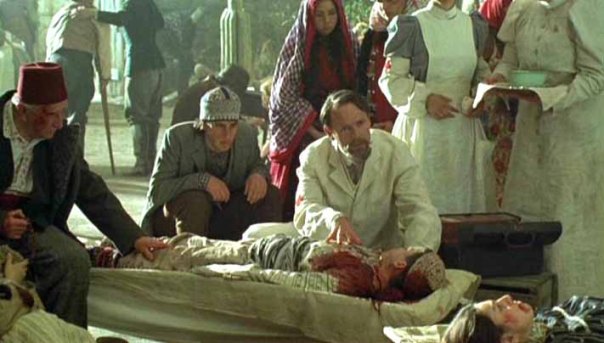 Do you still want your films to perhaps not have that well of suppressed emotion in the earlier work, but still have something underneath them - some unexpressed mystery?
Do you still want your films to perhaps not have that well of suppressed emotion in the earlier work, but still have something underneath them - some unexpressed mystery?
Yes. That’s what I strive for - you’ve said it very well, unexpressed mystery, that’s what I think I’m most drawn to in drama. And that mystery can be either about what has happened to these characters, or what will happen to them in the future. But unexpressed mystery is why I’m drawn to this form, and the films that have inspired me are steeped in that, where I feel that there are all sorts of things I’m not understanding but which I’m drawn to. The very fact that a filmed image feels real, that it feels like it’s actually happening, that it is a way, as Tarkovsky says, of sculpting time is a wonderful thing to resist, it’s a wonderful thing to play against. Especially when people are trying to put together fragments of a life that’s been shadowed by something beyond their control.
Was Ararat (pictured above right, and below with Egoyan's wife and regular star Arsinee Khanjian), as well as dealing with the Armenian genocide, an attempt to deal with the mystery of your own cultural identity? Did it feel like a breakthrough for you in that sense?
Well, for me it’s not a film so much about genocide as it is a film about denial of history, and how that impacts on a number of different characters, and this idea that when something is denied, you over-compensate in terms of how you tell things, and that distorts all sorts of conduits for expression. I think it’s the most ambitious and probably, curiously, the most important film I’ll ever make, but it’s also deeply flawed - I can see that there are too many stories being told. But I just felt that I had this chance to do it all in this one film, and I needed to convey so much, and by nature it’s unwieldy. It was the film which changed my career, because until then the films were not dealing with any specific reality, and then suddenly there was this historic reality. That really divided people, they didn’t quite know what I was up to. But I’m very proud of that film. What I sometimes feel now when I watch it is that it should have been written as a novel, and then adapted very carefully! It’s a really challenging film, because how do you deal with all these different strands of history that the viewer doesn’t know? How do you work in the amount of expository material so that you even get a sense of what happened? That became very cumbersome.
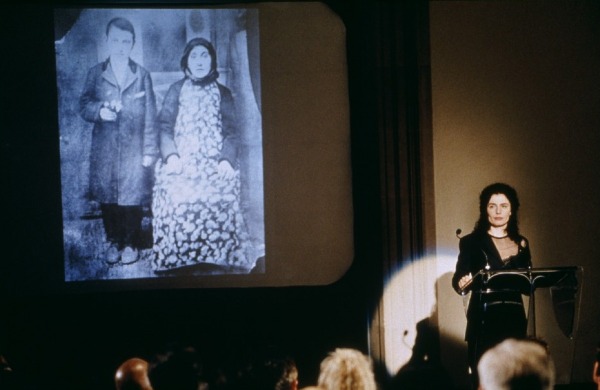 Did a lot of what was being suppressed in the earlier films come to the surface in Ararat?
Did a lot of what was being suppressed in the earlier films come to the surface in Ararat?
Yes…perhaps, and perhaps that’s what was difficult for people who’d been following my films, is that it became too clear what the agendas were, that suddenly it became quite literal, and that creates a break. These early films never even mention the word “Armenian”, I don’t think - in Next of Kin, or Family Viewing, or Speaking Parts when they’re speaking Armenian. Maybe Calendar was the first time that you were aware of a specific place. What gave these films this special tone was that we didn’t really know what culture it was, but there was that sense of it being mysterious, and in Ararat it suddenly becomes very specific. And that does shift the nature of the project.
Is it as if with these early films there’s an element of interestingly and usefully disguising what you are really about, and with Ararat that disguise was removed?
It was removed, and in a way it needed to be removed for what that film had to do. It was a changing point. With that film, there was a before and an after. And being more exposed has been a difficult thing for me.
- Next of Kin, Family Viewing, Speaking Parts and The Adjuster are out on DVD and Blu-ray now. Calendar and Exotica are released on August 26, and The Sweet Hereafter follows on September 9
Explore topics
Share this article
The future of Arts Journalism
You can stop theartsdesk.com closing!
We urgently need financing to survive. Our fundraising drive has thus far raised £49,000 but we need to reach £100,000 or we will be forced to close. Please contribute here: https://gofund.me/c3f6033d
And if you can forward this information to anyone who might assist, we’d be grateful.

Subscribe to theartsdesk.com
Thank you for continuing to read our work on theartsdesk.com. For unlimited access to every article in its entirety, including our archive of more than 15,000 pieces, we're asking for £5 per month or £40 per year. We feel it's a very good deal, and hope you do too.
To take a subscription now simply click here.
And if you're looking for that extra gift for a friend or family member, why not treat them to a theartsdesk.com gift subscription?
more Film
 London Film Festival 2025 - a Korean masterclass in black comedy and a Camus classic effectively realised
New films from Park Chan-wook, Gianfranco Rosi, François Ozon, Ildikó Enyedi and more
London Film Festival 2025 - a Korean masterclass in black comedy and a Camus classic effectively realised
New films from Park Chan-wook, Gianfranco Rosi, François Ozon, Ildikó Enyedi and more
 After the Hunt review - muddled #MeToo provocation
Julia Roberts excels despite misfiring drama
After the Hunt review - muddled #MeToo provocation
Julia Roberts excels despite misfiring drama
 Ballad of a Small Player review - Colin Farrell's all in as a gambler down on his luck
Conclave director Edward Berger swaps the Vatican for Asia's sin city
Ballad of a Small Player review - Colin Farrell's all in as a gambler down on his luck
Conclave director Edward Berger swaps the Vatican for Asia's sin city
 London Film Festival 2025 - Bradley Cooper channels John Bishop, the Boss goes to Nebraska, and a French pandemic
... not to mention Kristen Stewart's directing debut and a punchy prison drama
London Film Festival 2025 - Bradley Cooper channels John Bishop, the Boss goes to Nebraska, and a French pandemic
... not to mention Kristen Stewart's directing debut and a punchy prison drama
 London Film Festival 2025 - from paranoia in Brazil and Iran, to light relief in New York and Tuscany
'Jay Kelly' disappoints, 'It Was Just an Accident' doesn't
London Film Festival 2025 - from paranoia in Brazil and Iran, to light relief in New York and Tuscany
'Jay Kelly' disappoints, 'It Was Just an Accident' doesn't
 Iron Ladies review - working-class heroines of the Miners' Strike
Documentary salutes the staunch women who fought Thatcher's pit closures
Iron Ladies review - working-class heroines of the Miners' Strike
Documentary salutes the staunch women who fought Thatcher's pit closures
 Blu-ray: The Man in the White Suit
Ealing Studios' prescient black comedy, as sharp as ever
Blu-ray: The Man in the White Suit
Ealing Studios' prescient black comedy, as sharp as ever
 The Woman in Cabin 10 review - Scandi noir meets Agatha Christie on a superyacht
Reason goes overboard on a seagoing mystery thriller
The Woman in Cabin 10 review - Scandi noir meets Agatha Christie on a superyacht
Reason goes overboard on a seagoing mystery thriller
 London Film Festival 2025 - crime, punishment, pop stars and shrinks
Daniel Craig investigates, Jodie Foster speaks French and Colin Farrell has a gambling habit
London Film Festival 2025 - crime, punishment, pop stars and shrinks
Daniel Craig investigates, Jodie Foster speaks French and Colin Farrell has a gambling habit
 I Swear review - taking stock of Tourette's
A sharp and moving tale of cuss-words and tics
I Swear review - taking stock of Tourette's
A sharp and moving tale of cuss-words and tics
 A House of Dynamite review - the final countdown
Kathryn Bigelow's cautionary tale sets the nuclear clock ticking again
A House of Dynamite review - the final countdown
Kathryn Bigelow's cautionary tale sets the nuclear clock ticking again

Add comment